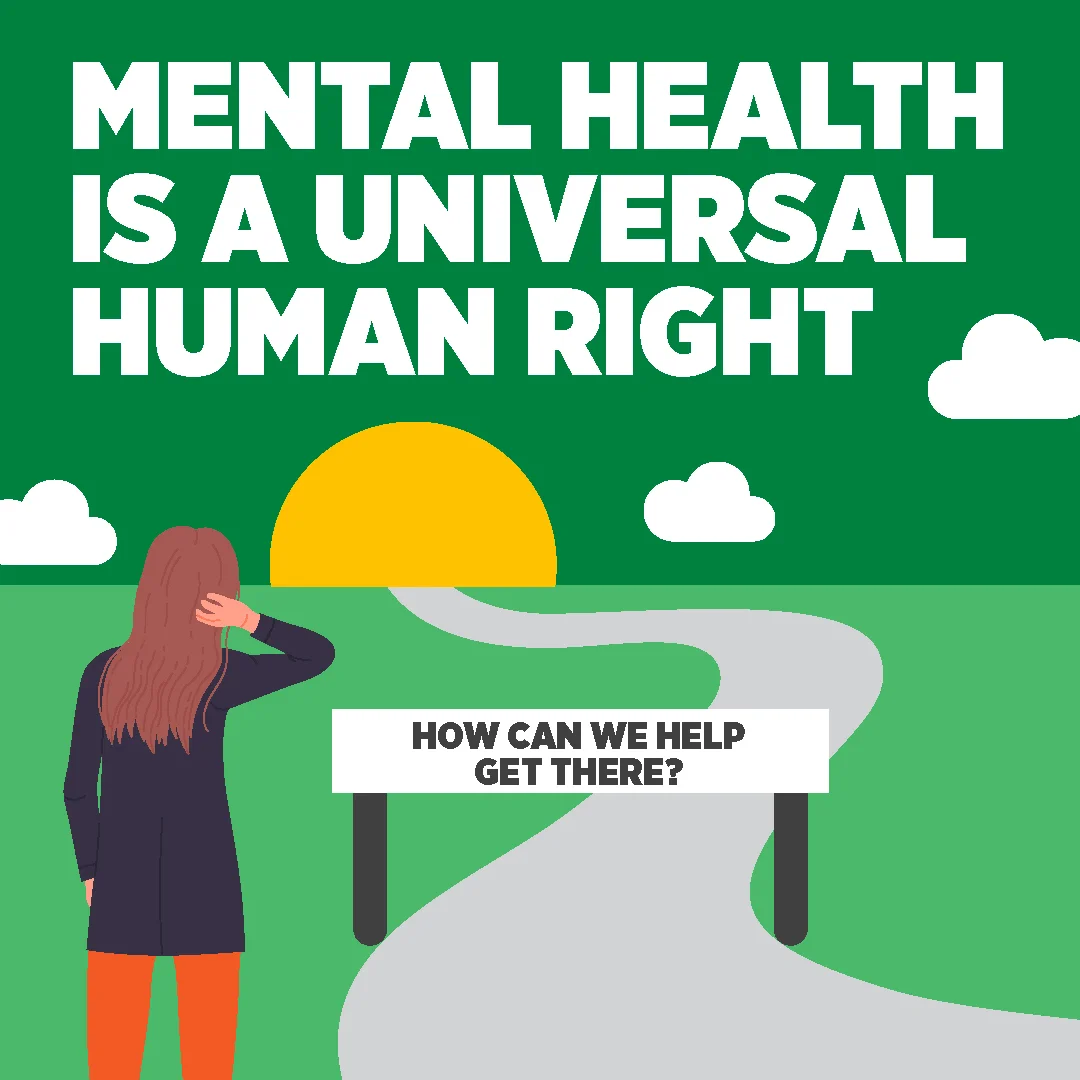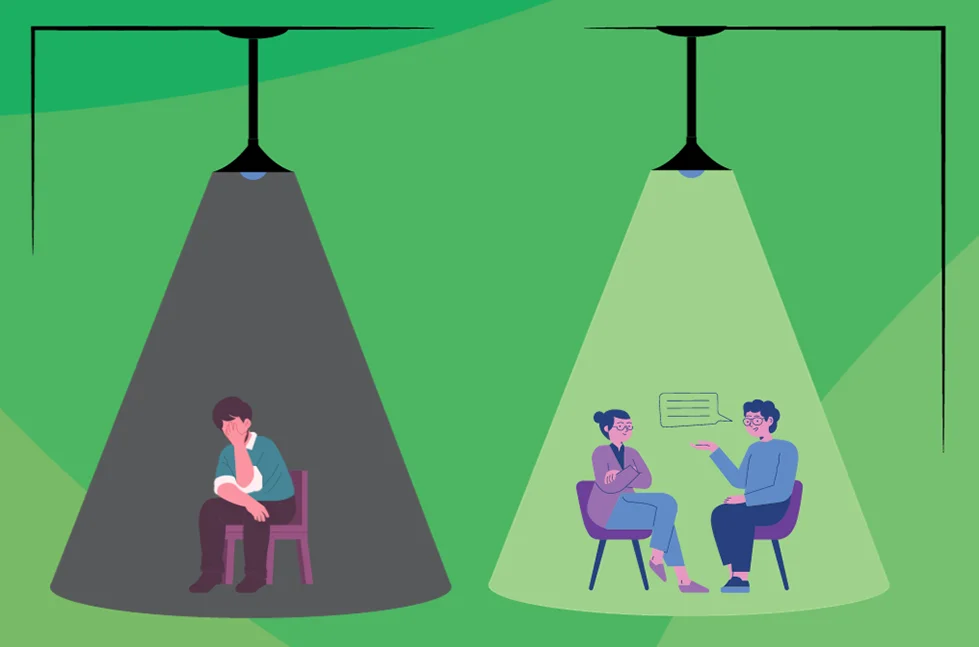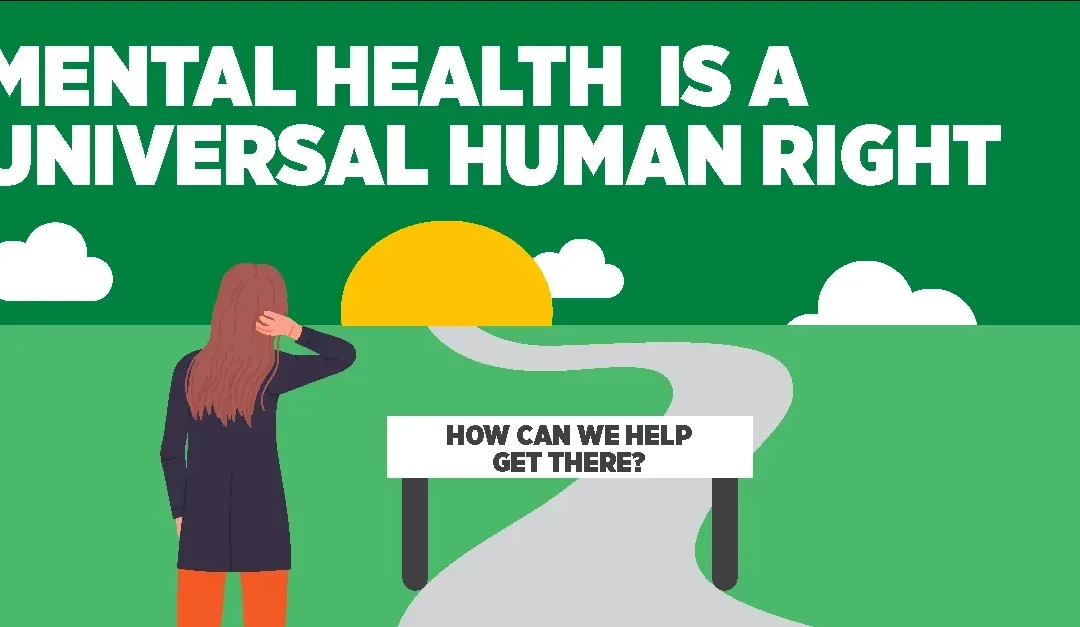10th October marks World Mental Health Day, a global initiative to raise awareness about mental health issues and advocate for the rights of those facing mental health challenges. This year’s theme, “Mental health is a universal human right”, aims to improve knowledge and drive actions that promote and protect everyone’s mental well-being.
Mental illness is common, with 1 in 5 Australians likely to experience a mental health problem in any given year. Unfortunately, professional help is received by only 47.1% of people who experience common mental illnesses – which means more than half are left without the support they need.
Seeking professional help for mental health concerns is key to recovery, but there can be significant barriers that stand in the way of people accessing support when they need it most.
We do know that people with mental health problems are more inclined to seek help if someone close to them suggests it. This idea is at the centre of Mental Health First Aid (MHFA) training.
Those trained in MHFA – known as Mental Health First Aiders (MHFAiders) – are uniquely placed to help break down some of the barriers to help seeking.
This World Mental Health Day, we wanted to highlight the role of MHFAiders in breaking down these barriers, and explore practical ideas for genuine support that may lead to professional care.

Recognising the signs
One of the significant barriers to seeking help for mental health issues is a lack of awareness about the signs and symptoms of mental illness.
Mental health problems can manifest in several subtle and unique ways. Without understanding the signs and symptoms of mental health problems – whether in ourselves or those around us – people may dismiss their feelings as temporary or “normal”. Unspoken clues can often point to signs that someone might benefit from a mental health conversation, even if they don’t know it themselves.
Having the appropriate skills, knowledge and mental health literacy to recognise the early warning signs of an emerging or worsening mental health problem, can be crucial in helping someone understand that help is needed. Early intervention support from an MHFAider can make the world of a difference, helping someone realise that they need help before the problem worsens. Planning can also be key to success, so before you reach out for an initial mental health conversation take some steps to make sure you’re prepared.
Awareness of available help
A common barrier to someone accessing necessary support is not knowing that help is available.
There are multiple pathways that can lead to improved mental health outcomes, and everyone’s journey will be unique to their own situation and experiences. The first step to helping someone find what is right for them, is to help them understand what supports are available and point them in the direction of further information.
As Mental Health First Aiders, we can provide high-level information about treatments available for a range of common mental illnesses, from psychological therapies and medical treatments to complementary therapies and lifestyle changes. It’s not our role to prescribe a particular treatment, but sharing information and placing it in the right context can be paramount in helping to educate others.
When talking about mental ill-health with friends, family or colleagues who might not know that help is available, reassure them that just like physical illness, there are many helpful supports and effective treatment options available with which many people have had success.
If someone shows reluctance toward professional care, one approach may be to let them know how professional help has worked for others and how it can work for them too. If appropriate, you can also share any positive experiences of you own, and let them know, that it often takes time and a few attempts to find the right fit. Remind them that the final choice for their treatment is completely in their control.

Many people experience mental ill-health not knowing help is available.
Community-led support
Despite the evident importance of professional support, barriers such as long waitlists and financial constraints often impede timely access to essential mental health care.
For people living with mental illness, not knowing when and how they will receive mental health support can be an extremely difficult barrier to overcome – not just for them, but also for anyone supporting them.
As MHFAiders, we can provide initial support until professional help arrives. We can provide information that might connect individuals with other help and supports available while they wait for professional care. By offering information about alternative forms of support, self-help techniques and evidence-based community resources, we can empower individuals to cope more effectively until they can access the professional care they need.
Tackling stigma and shame
Perhaps one of the most pervasive barriers to mental health support is the stigma and shame that can surround mental illness.
Being open, honest and proactive about mental health in our daily lives can make much more of an impact than you might realise – contributing to helping break down the stigma that too often prevents help seeking. It’s also important to make use of compassionate language by focusing on supportive and inclusive language, and recognising harmful language that can promote stigma, misinformation, intolerance or fear related to mental illness.
As MHFAiders, we can provide genuine support to someone who is experiencing a mental health problem that is accompanied by feelings of shame or embarrassment. Part of this support is letting the person know that mental illness, just like physical illness, is very treatable and assuring them that asking for help is not a weakness. By listening and communicating non-judgmentally and guiding the individual to informative resources about mental illness, we can lay the groundwork to removing the shame that someone may carry.
If someone who is facing stigma or shame declines your help, it’s important to reflect on why they refused help, keep the door open and consider making a reapproach.
Remind the individual that if they needed help lifting something heavy, they wouldn’t hesitate to ask a friend – and their mental health is no different.
Tackling stigma more broadly requires collective effort. It is through our shared skills and knowledge as MHFAiders, and a continued effort to talk openly about mental health, that we can create an environment where everyone is encouraged to talk openly about mental health — and feels safe and willing to do so.
Creating a world where we all have the skills to support someone in need
Breaking down the barriers that people face on their journey to better mental health requires a multifaceted approach. MHFAiders have a vital role to play, providing a crucial bridge to professional care by guiding individuals on how to connect someone to appropriate resources and support. By fostering awareness, understanding and early intervention, we as MHFAiders can contribute to a world where mental health is a universal human right accessible for anyone, and everyone.



